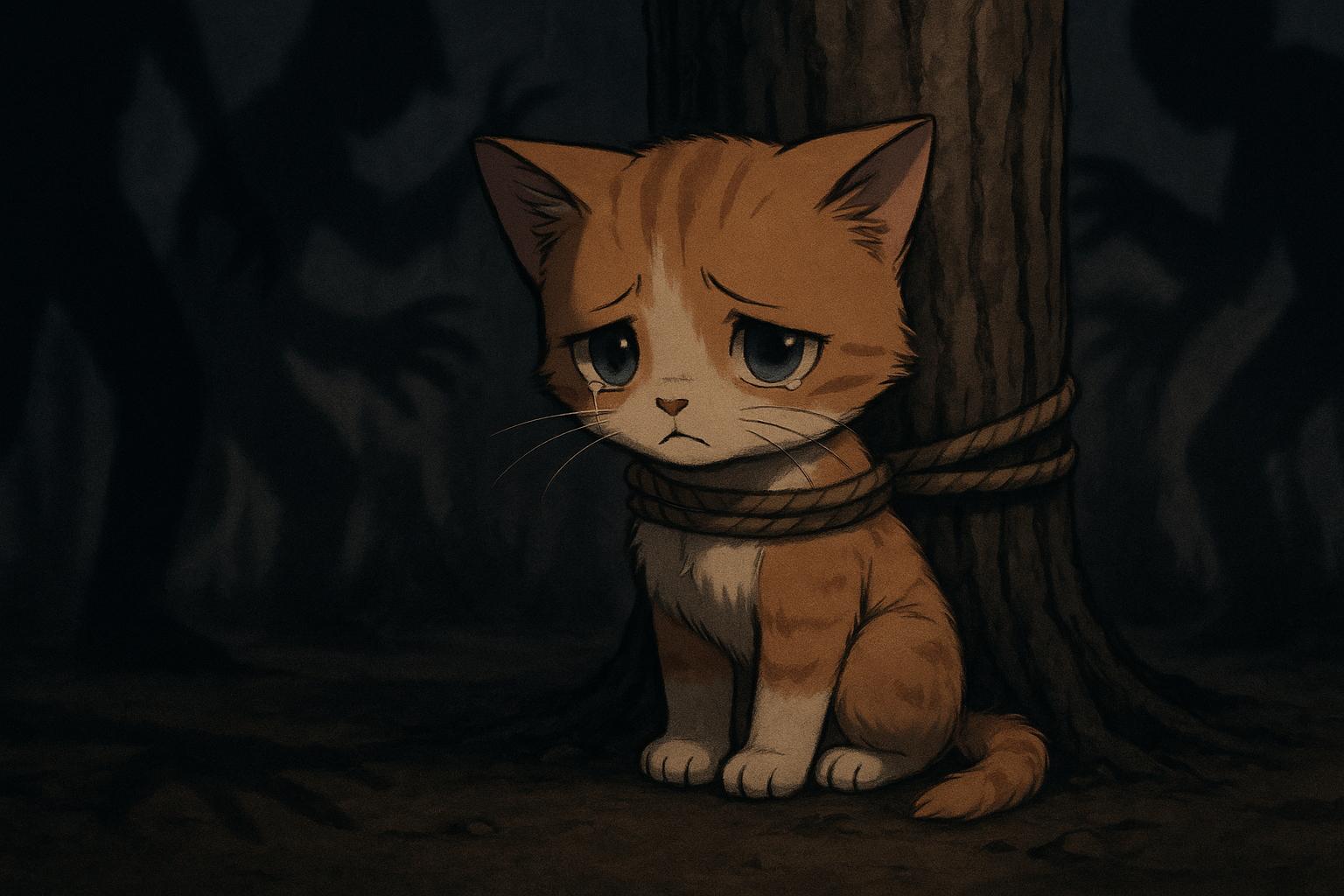A striking case of animal cruelty has emerged from Ruislip, north-west London, where two teenagers, aged 16 and 17, have pleaded guilty to the brutal torture and killing of two kittens. Appearing at Highbury Corner Magistrates' Court, the duo admitted to causing unnecessary suffering to the animals, a crime that underscores growing concerns around youth violence and the treatment of animals in society.
The tragic events took place on May 3, where the kittens were horrifically discovered tied up and mutilated near Ickenham Road. One of the unfortunate animals was found hanging from a tree, while its companion lay on the ground nearby, demonstrating a disturbing level of cruelty. Prosecutor Valerie Benjamin revealed that evidence from the boy's phone indicated a premeditated intent, as he followed conversations concerning the killing of cats and dogs, and shockingly, even researched methods of killing a human. This behaviour is not an isolated incident; it reflects an alarming trend of animal abuse among youth, a phenomenon noted in multiple reports across the country.
Further compounding the issue, the defendants were also charged with possession of a knife at Ruislip Golf Course, suggesting an environment rife with violence. The court, which summoned the pair flanked by security, noted the seriousness of their actions. Judge Michael Oliver warned them, stating, “As I hope is clear to you, the offences are extremely serious. I am not ruling out any way of dealing with you.” Their sentencing is scheduled for June 23.
This incident forms part of a worrying pattern of animal abuse that has been escalating in parts of England and Wales. According to the RSPCA, there was a reported 23% rise in attacks on animals involving weapons in 2023 compared to the previous year. This surge is thought to be fuelled in part by social media, where moments of cruelty are shared and celebrated online, desensitising viewers to the suffering of animals. Incidents have also been documented where groups of teenagers have deliberately sought to harm pets for the amusement of their peers, demonstrating a troubling disconnection from empathy.
Similarly, reports have surfaced recently from Surrey, where residents described a group of teenagers allegedly trapping their cats and allowing their dogs to attack them. Local police confirmed receiving multiple reports of these malicious activities, leading to widespread calls for more proactive measures from both law enforcement and animal welfare organisations.
The same disturbing trend appears elsewhere in the UK, with previous cases involving groups of schoolchildren torturing and killing animals for sport or prank-like behaviour. Such incidents have sparked local outrage and ignited community petitions demanding stricter oversight and protection for vulnerable animals.
As society grapples with these troubling manifestations of youth violence and desensitisation to cruelty, it raises critical questions about the root causes behind this behaviour and whether sufficient measures are in place to deter it effectively. The upcoming sentencing in the Ruislip case may well offer a pivotal moment for reflection on how the justice system addresses such offences and the need for long-term educational and rehabilitative strategies to combat cruelty at its source.
The two defendants await their fate as the legal proceedings move forward, while animal rights advocates and concerned citizens urge for a greater societal commitment to preventing such atrocities in the future.
Reference Map
1: Paragraphs 1, 2, 4, 5 2: Paragraphs 1, 2, 4 3: Paragraph 3 4: Paragraphs 3, 6 5: Paragraph 6 6: Paragraph 6 7: Paragraph 6
Source: Noah Wire Services
